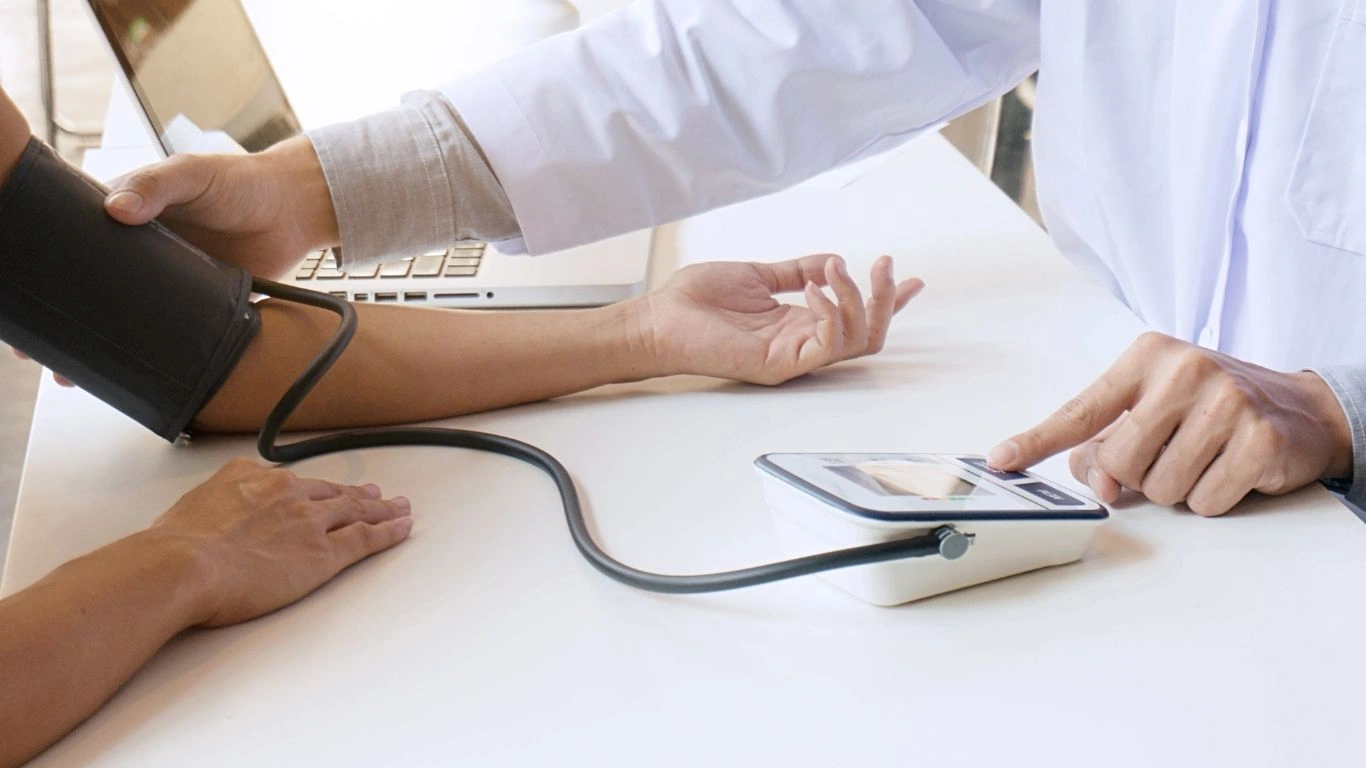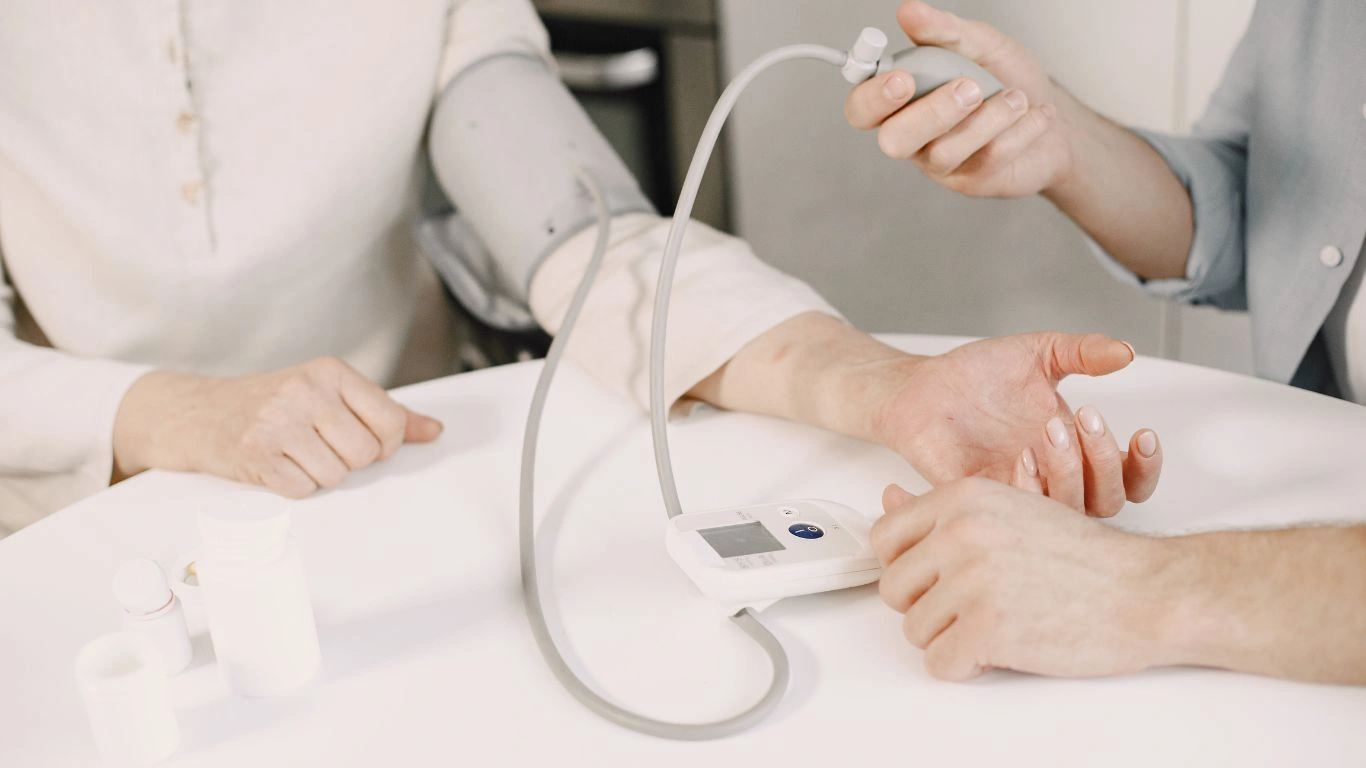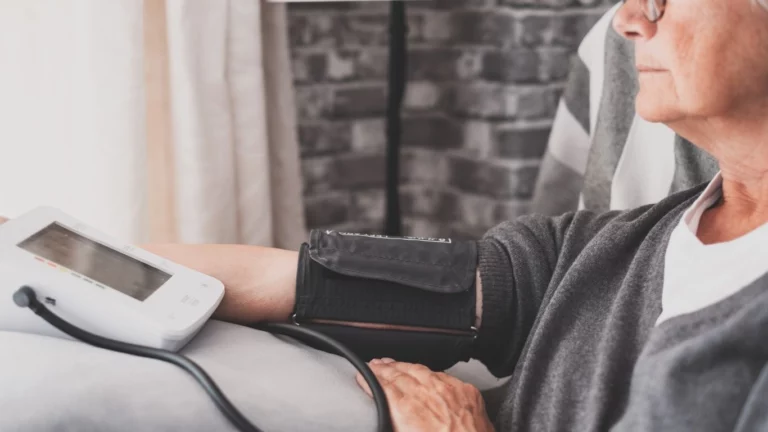How Hot Baths Affect Blood Pressure 🛁💡
Hot baths — who doesn’t love a good soak? After a long, tiring day, there’s just something about sinking into warm water that makes everything feel better. But have you ever stopped to think about how hot baths might affect your blood pressure? It’s something I’ve wondered myself, especially after a particularly relaxing bath where I felt both calm and energized at the same time. So, let’s dive into how a hot bath might impact your heart and blood pressure. Spoiler: it’s not just about getting clean!

What Happens When You Take a Hot Bath?
You know that relaxed feeling you get after a hot bath? Well, there’s a lot more happening in your body than just chilling out. Here’s the scoop:
1. Increased Blood Flow
When you step into that warm water, your blood vessels start to open up (kind of like stretching out after sitting too long). This process is called vasodilation, and it helps blood flow more easily through your body. For a little while, your heart doesn’t have to work as hard, and this could mean a temporary drop in blood pressure.
2. Relaxation of Muscles
I’m sure we’ve all had those moments where we’ve stepped out of the bath feeling like a new person—no muscle stiffness or tension. That’s because the warm water helps loosen up tight muscles. Not only does this make you feel better physically, but it can also take a load off your mental state, reducing stress. And stress, as you know, is a big player when it comes to high blood pressure.
3. Slower Heart Rate
Soaking in a hot bath can actually lower your heart rate (at least temporarily). Think about it: when you’re not stressed and your muscles aren’t tense, your body naturally calms down. This can help lower your blood pressure too. It’s like the bath is giving your heart a mini vacation!

The Good, the Bad, and the Cozy: Hot Baths and Blood Pressure
Now, before you start planning your next bath session, let’s break down the potential benefits and the things you might need to watch out for.
The Good: Why Hot Baths Can Be Great for Your Blood Pressure
- Instant Stress Relief: I’ve found that after a long day, a hot bath can work wonders for lowering my stress. And guess what? Lower stress means lower blood pressure, at least for a while. It’s a win-win.
- Better Circulation: If your circulation isn’t great, the heat from a bath can actually help improve it. That’s good news for your heart and overall blood pressure health.
- Mood Boost: Hot water = relaxation = less cortisol (the stress hormone). If you’ve been feeling a bit frazzled, a bath can be a great way to help your body and mind hit the reset button.
The Not-So-Great: The Risks You Should Consider
- Too Hot? Too Much Pressure: Here’s the thing: while hot baths can help temporarily lower blood pressure, if the water’s too hot, it could have the opposite effect. Overheating can actually stress your body out and spike your blood pressure. So, keep the temperature in check — no need to boil yourself!
- Long Soaks Aren’t Always the Best: Staying in a bath for a long time can make your blood vessels constrict when you get out, which could actually raise your blood pressure. 20 minutes is usually a good sweet spot.
- Watch Out for Dizziness: Ever gotten out of a hot bath and felt a bit dizzy? That’s a common reaction to the sudden change in body temperature. If you’re prone to feeling lightheaded, it might be a good idea to take it easy when stepping out.

Troubleshooting Common Issues
Okay, so hot baths sound great, but what if you’re hitting some bumps along the way? Here are a few quick fixes for common problems:
Issue 1: Feeling Lightheaded After Your Bath
If you feel a bit dizzy or lightheaded after your bath, it might be the quick transition from warm to cool air (or standing up too fast). My trick? I get out slowly and make sure I’m drinking water to stay hydrated. Oh, and a cooler bath temperature might help next time too.
Issue 2: Skin Getting Irritated
If your skin feels irritated after soaking, it could be because you’ve been in there a little too long. Try shortening your bath time, or use soothing ingredients like Epsom salts to calm your skin down. Trust me, it’s like a spa experience.
Issue 3: Water’s Too Hot
I think we’ve all been there — the water feels like it’s getting a little too toasty. Always test it before hopping in. If it’s too hot, just add a bit of cooler water until it’s at a comfy temperature.

Case Studies / Success Stories
Sometimes, hearing about other people’s experiences can make things feel more real. Here are a couple of stories I came across:
Jane’s Journey to Lower Blood Pressure
Jane, a 45-year-old office worker, was dealing with high blood pressure for a while. She started incorporating hot baths into her routine to manage stress (and let’s be real, who doesn’t love a good bath?). After a few weeks, Jane noticed her stress levels were way down, and her blood pressure was more stable. Her doctor was even impressed with the improvement!
Tom’s Stress Relief Through Hot Baths
Tom had been dealing with stress-induced high blood pressure. After work, he started making a habit of taking hot baths, and he noticed something pretty amazing: his anxiety levels dropped, and his blood pressure followed suit. It’s proof that sometimes the simplest things — like a nice, warm bath — can have a big impact on our health.
Key Takeaways / Summary
- Hot baths can temporarily lower blood pressure by improving circulation and promoting relaxation.
- If you’re feeling stressed, a hot bath might just be what you need to unwind — and a relaxed mind can lead to a more relaxed body.
- But remember: Too hot of a bath or staying in too long can have the opposite effect. Moderation is key.
So, while hot baths aren’t a magical fix for hypertension, they can certainly be a helpful tool when combined with other healthy habits.
FAQs
Q: Can hot baths replace my blood pressure medication?
A: Nope! Hot baths are great for relaxation, but they’re not a substitute for your doctor-prescribed treatment. Always check with your healthcare provider before making big changes.
Q: How long should I soak to see benefits?
A: Around 15-20 minutes is usually enough to enjoy the benefits without overdoing it.
Q: Are hot baths safe for people with heart conditions?
A: It depends. If you have heart disease, definitely talk to your doctor before using hot baths regularly. They can sometimes cause problems, depending on your condition.
References
- Effects of warm water immersion on cardiovascular and thermoregulatory responses. Journal of Applied Physiology.
- The physiological effects of heat exposure. Journal of Human Physiology and Biochemistry.
- Hot water and its effects on cardiovascular health. National Heart Foundation.
Disclaimer
This article is for informational purposes only and isn’t meant to replace medical advice. Always check with your healthcare provider if you have any concerns, especially if you’re dealing with heart conditions or high blood pressure.
Call to Action
Ready to give hot baths a try for stress relief and better blood pressure? Just remember to keep the water at a comfortable temperature and avoid staying in too long. Let me know how it works for you, and don’t forget to chat with your doctor if you’ve got any health concerns! 🛁💧






